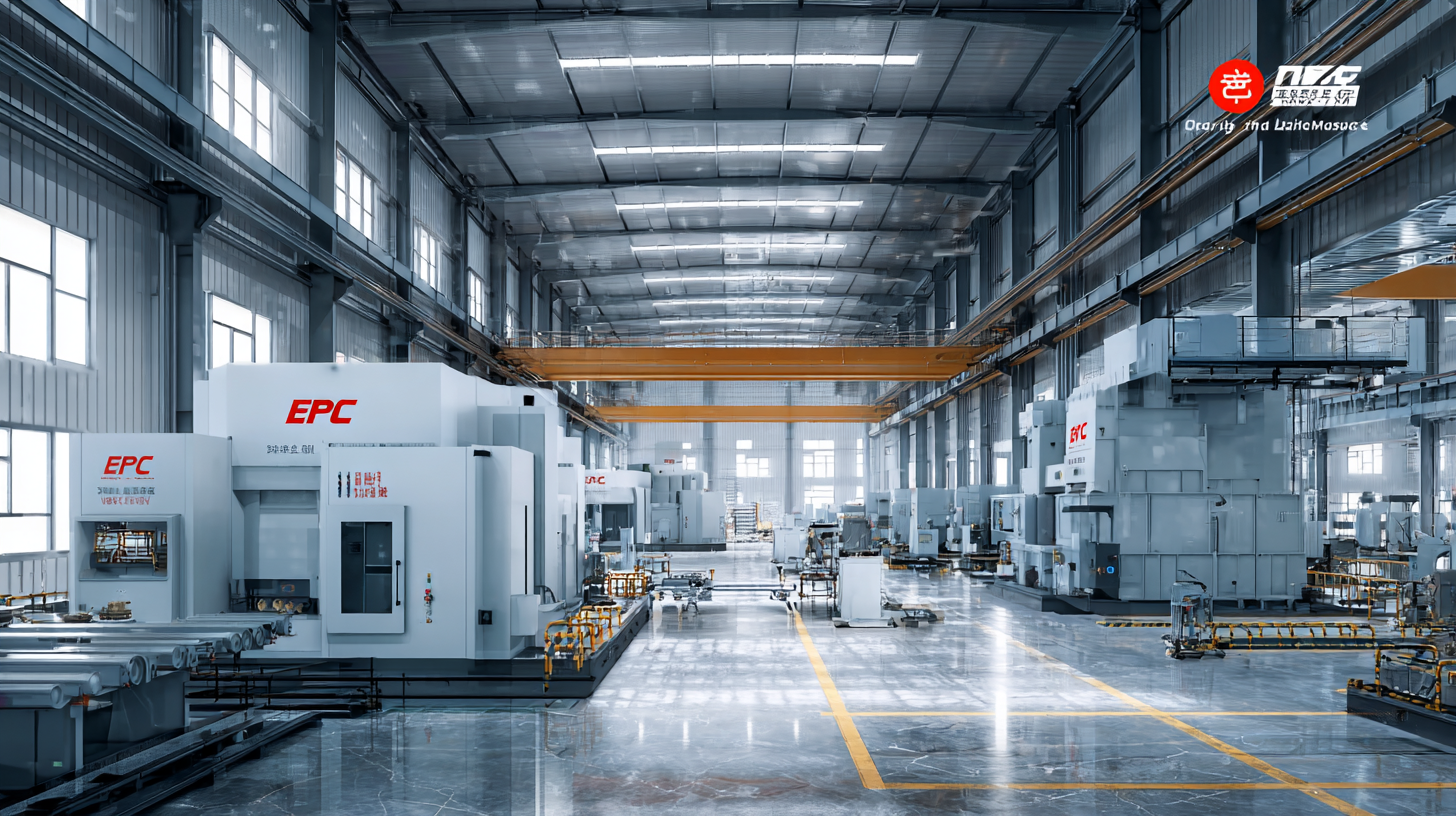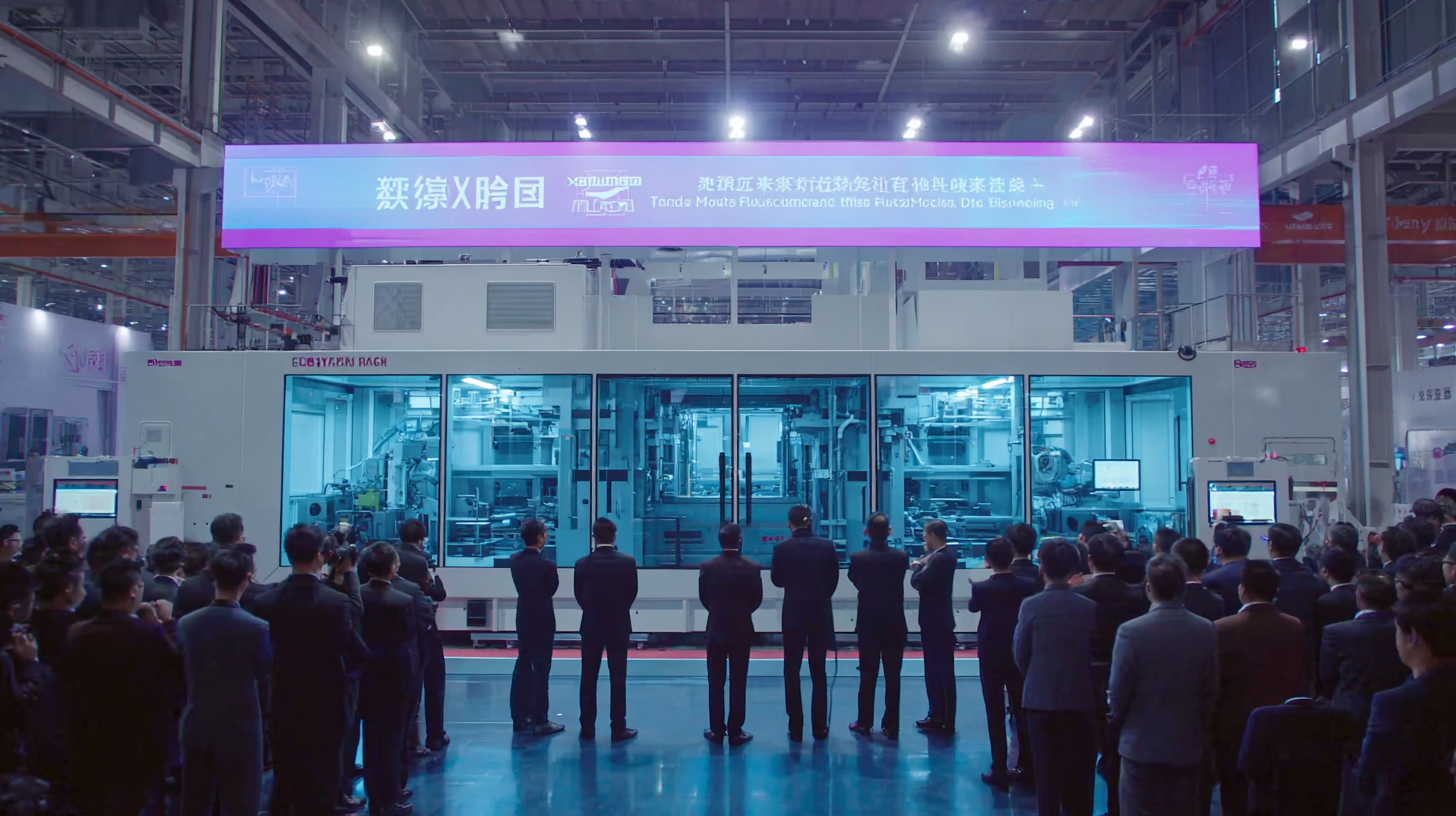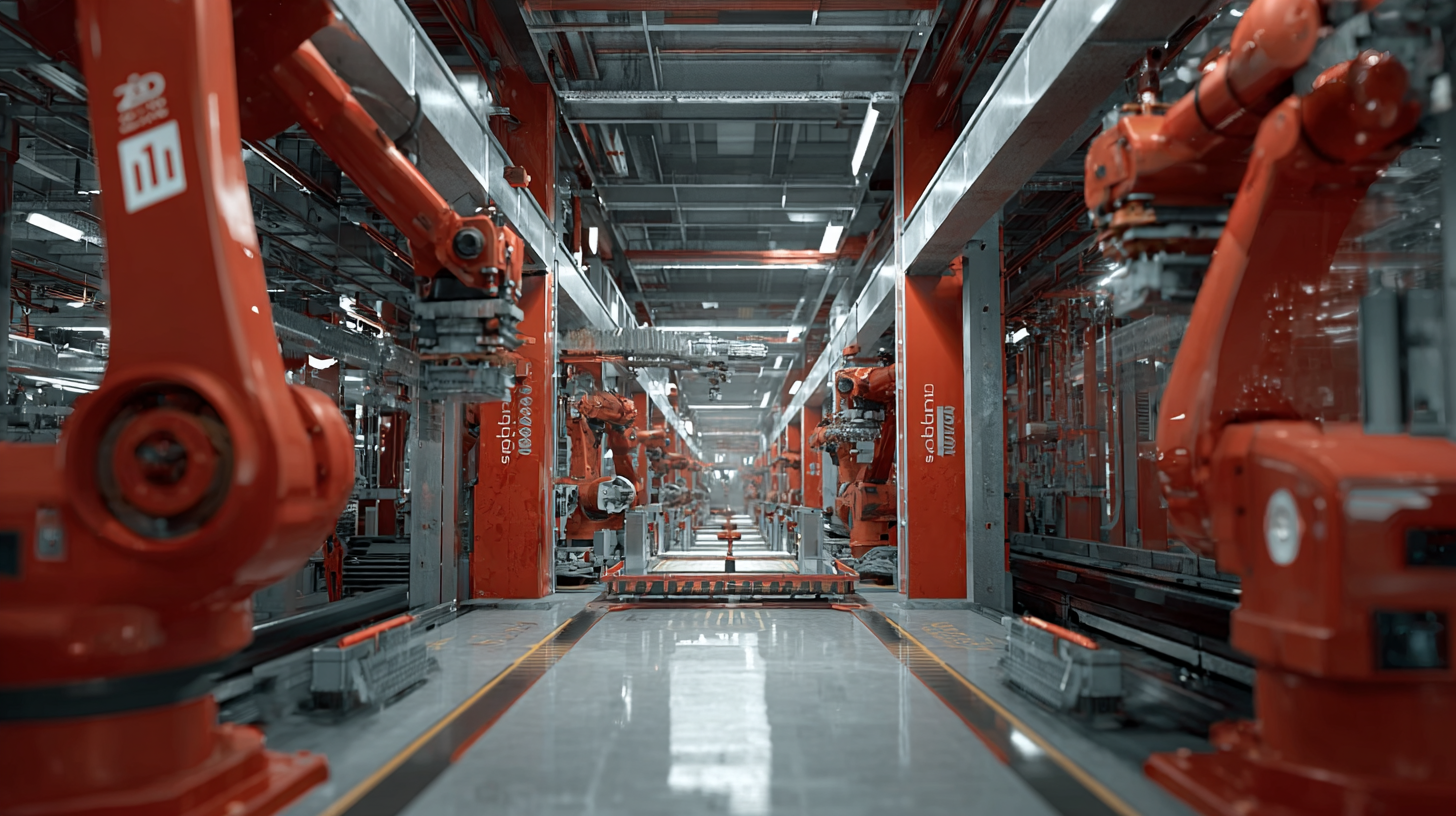
Unveiling Chinas Premier Epc Machine Shaping the Future of Global Manufacturing Excellence
As the global manufacturing landscape continues to evolve, China's premier EPC machine is poised to redefine excellence in this competitive field. According to a recent McKinsey report, the manufacturing sector is projected to account for 20% of global GDP by 2025, highlighting the urgent need for advanced technologies that enhance productivity and efficiency.
 The EPC machine—Engineering, Procurement, and Construction—stands at the forefront of this transformation, integrating cutting-edge automation and digital solutions to streamline operations. With the rise of Industry 4.0, this innovative machinery not only boosts production capabilities but also supports sustainable practices, aligning with the global shift towards eco-friendly manufacturing. As we delve into the technical trends and strategies that will shape the future of the industry, it's essential to understand the pivotal role of EPC machines in driving manufacturing excellence on a global scale.
The EPC machine—Engineering, Procurement, and Construction—stands at the forefront of this transformation, integrating cutting-edge automation and digital solutions to streamline operations. With the rise of Industry 4.0, this innovative machinery not only boosts production capabilities but also supports sustainable practices, aligning with the global shift towards eco-friendly manufacturing. As we delve into the technical trends and strategies that will shape the future of the industry, it's essential to understand the pivotal role of EPC machines in driving manufacturing excellence on a global scale.
Unpacking the Role of China's Premier EPC Machine in Global Manufacturing Trends
The global manufacturing landscape is undergoing a significant transformation, with China's premier Engineering, Procurement, and Construction (EPC) machine paving the way for innovation and efficiency. As we explore the role of this sophisticated EPC system, it's essential to understand its implications for global manufacturing trends. The global offshore EPC contract award value is projected to reach a staggering $54 billion by 2025, underscoring the increasing reliance on advanced construction methodologies to meet burgeoning demands.
Moreover, the solar EPC market is experiencing remarkable growth, projected to expand at a compound annual growth rate (CAGR) of 8.1% from 2025 to 2034. This growth is fueled by the escalating focus on renewable energy solutions amid tightening regulations and evolving consumer preferences. As the world shifts towards sustainable practices, China's EPC machinery not only enhances construction efficiency but also drives forward the adoption of solar technology, positioning it as a formidable player in the global manufacturing arena. With 18 floating production units, including several LNG facilities, expected to be awarded this year, China's EPC capabilities are set to play a crucial role in shaping future manufacturing trends across diverse sectors.
Key Challenges Faced by Manufacturers Adopting Advanced EPC Technologies
The adoption of advanced EPC (Engineering, Procurement, and Construction) technologies in China poses significant challenges for manufacturers striving for global excellence. According to a report by McKinsey, companies that successfully integrate advanced manufacturing practices can increase productivity by up to 25%. However, many Chinese manufacturers face hurdles such as insufficient technical expertise and a lack of standardized processes. Research by Deloitte highlights that nearly 40% of manufacturers cite workforce skill gaps as a major barrier to technology adoption, which can hinder their ability to fully leverage the benefits of EPC systems.

In addition to skill deficits, the high initial investment required for advanced EPC technologies can deter many manufacturers. A study conducted by PwC estimates that while companies can realize a 15% reduction in operational costs through these systems, the upfront costs can be prohibitively high for small to medium-sized enterprises (SMEs), which make up about 98% of China’s manufacturing sector. With the global shift towards Industry 4.0, manufacturers must balance financial constraints with the need for innovation, highlighting the importance of strategic investments in training and technology to overcome these challenges effectively.
Quantifying Efficiency Gains: Data on Production Time Reduction with EPC Machines
In recent years, the adoption of EPC (Engineering, Procurement, and Construction) machines in China has revolutionized manufacturing efficiency, leading to significant reductions in production time. According to a report by McKinsey, industries that leveraged advanced manufacturing technologies, including EPC systems, experienced up to a 30% decrease in production cycles. This remarkable efficiency gain is largely attributed to the streamlined workflows and automated processes that EPC machines facilitate, allowing manufacturers to respond swiftly to market demands.
Moreover, a comprehensive study by the Boston Consulting Group highlighted that companies implementing EPC machines could reduce lead times by as much as 25%. By automating critical phases of production and ensuring precision in resource allocation, manufacturers not only enhance output but also minimize downtime. This data underscores the growing importance of EPC technologies in maintaining competitive advantages within the global manufacturing landscape, propelling China forward as a leader in innovative manufacturing solutions. The positive impact of these machines is clear, positioning them as essential tools for businesses aiming to optimize operations and drive efficiency in the increasingly complex global market.
Impact of China's EPC Machines on Cost-Effectiveness in Global Supply Chains
As China ascends as a formidable force in global manufacturing, the emergence of its EPC (Engineering, Procurement, and Construction) machines plays a pivotal role in reshaping cost structures within international supply chains. With the global market for power plant EPC projects projected to surge to USD 194.8 billion by 2034, China's innovative capabilities are drastically driving down costs and optimizing project efficiencies. As businesses increasingly rely on Chinese manufacturing, the efficiency and cost-effectiveness of these EPC machines become critical in maintaining competitiveness across various industries.

However, the swift integration of Chinese supply chains also brings forth geopolitical implications, particularly concerning the security of critical infrastructure like the US power grid. Policymakers and stakeholders are urged to develop robust strategies to mitigate risks associated with dependency on foreign supply chains. The interplay of advancing technology and trade dynamics, exemplified by the ongoing tariff impacts, underscores the necessity for a resilient supply chain that strikes a balance between cost-effectiveness and risk management. In this evolving landscape, China's role in the global supply chain continues to redefine the boundaries of manufacturing excellence.
Future Projections: The Growth of the Global EPC Market and China's Position in It
The global Engineering, Procurement, and Construction (EPC) market is witnessing an unprecedented growth trajectory, with projections indicating a robust expansion driven by rapid industrialization, infrastructural demands, and technological advancements. In this evolving landscape, China stands at the forefront, leveraging its manufacturing prowess and innovative capabilities to shape the future of EPC services worldwide. Major investments in infrastructure projects, coupled with a strategic focus on sustainable development, position China as a key player in meeting the increasing demand for EPC solutions across diverse sectors.
As countries strive for modernization and enhanced productivity, China's role in the global EPC market becomes even more critical. With a growing emphasis on digital transformation and the adoption of smart construction technologies, Chinese firms are not only enhancing their operational efficiencies but also setting benchmarks for excellence. This proactive approach is likely to fortify China's competitive edge, enabling it to dominate the global EPC landscape while simultaneously contributing to the growth of industries across the globe. As we look to the future, the interplay between China's technological innovations and global market demands will undoubtedly redefine manufacturing excellence on an international scale.
